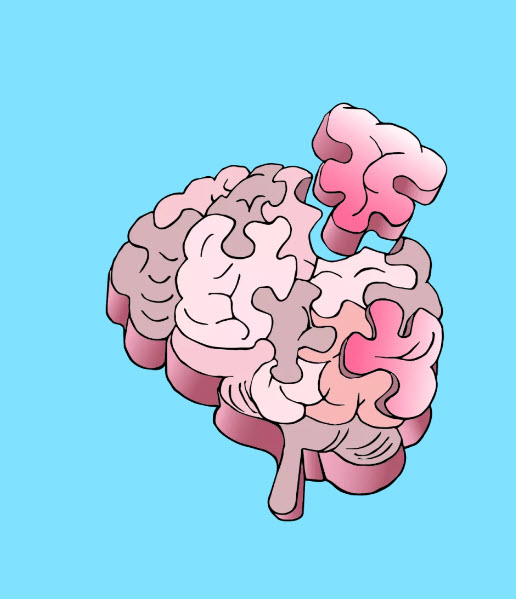NICABM – The Neurobiology of Trauma
The Neurobiology of Trauma and How to Apply It To Your Work with Clients.
During a traumatic event, the survival brain can take over and knock critical thinking offline.
To fully help clients heal from trauma, we have to understand what’s happening in the traumatized brain – while the traumatic event is occurring as well as how the client gets held hostage to threat cues long afterward.
The brain is so important to working with trauma that we wanted to create a program that solely focused on how to treat it.
We’ll look at the specific brain areas that get altered by trauma, and how this neutralizes the client’s ability to problem-solve.
5 of the top experts in the world will share how they treat clients who struggle with trauma. This The Neurobiology of Trauma Course brings together the sharpest strategies for working with a traumatized brain.
What you will learn in The Neurobiology of Trauma
How Trauma Overloads the Brain and Takes Away Its Ability to Cope
Bessel van der Kolk, MD Dan Siegel, MD
- The key part of a traumatized brain that gives trauma such enormous power
- The critical factor that allows the brain to successfully cope with a traumatic event
- The brain science underlying neurobiological shut-down
How Trauma Impacts Specific Areas of the Brain (And How This Can Affect Your Treatment)
Ruth Lanius, MD, PhD Bessel van der Kolk, MD Dan Siegel, MD
How the “survival brain” gets altered after a traumatic experience (and how to look for this in your client)
- Two hormones that leave the brain highly vulnerable when traumatic memories are forming
- What happens in the brain that makes some clients unable to distinguish threat cues from non-threatening stimuli
- The critical part of the brain stem impacted during trauma
How to Prevent Dissociation and Its Negative Influence on Trauma Recovery
Stephen Porges, PhD Pat Ogden, PhD Dan Siegel, MD
- Why dissociation may be driving your client’s trauma deeper into their nervous system
- How to work with dissociation and shift a client’s reaction to trauma
- One strategy to prevent dissociation and retrain a client’s trauma response
Strategies to Foster Powerful Brain Integration After Trauma
Pat Ogden, PhD Dan Siegel, MD
- Two distinct signs that your client might have impaired brain integration from trauma
- How the midbrain holds the key to the freeze response
- What posture reveals about a history of trauma, and how to work with it in the healing process
Epigenetics and the Brain: How Trauma Affects Gene Expression
Dan Siegel, MD
- Why systemic inflammation could be directly linked to how trauma impacts the brain
About Experts
Course Director: Ruth Buczynski, PhD
Dr. Ruth Buczynski is a licensed psychologist and founder and president of The National Institute for the Clinical Application of Behavioral Medicine (NICABM). NICABM helps physicians, nurses, psychologists, social workers, and counselors – practitioners who have some of the most significant and life-changing missions on the planet – provide cutting-edge, research-based treatment strategies to their patients. For more than 25 years, NICABM has offered accredited training and professional development programs to thousands of practitioners worldwide.
DAN SIEGEL, MD
Executive Director of the Mindsight Institute; Co-Director of UCLA’s Mindful Awareness Research Center; author of Mindsight: The New Science of Personal Transformation and The Mindful Therapist: A Clinician’s Guide to Mindsight and Neural Integration.
RUTH LANIUS, MD, PHD
Professor of Psychiatry and Director of the Post-traumatic Stress Disorder (PTSD) research unit at the University of Western Ontario. Coauthor of The Impact of Early Life Trauma on Health and Disease: The Hidden Epidemic, and Healing the Traumatized Self: Consciousness, Neuroscience, Treatment.
BESSEL VAN DER KOLK, MD
Neuroscientist and Professor of Psychiatry at Boston University Medical School. Author of The Body Keeps the Score: Brain, Mind, and Body in the Healing of Trauma.
PAT OGDEN, PHD
Pioneer in Somatic Psychology; Founder and Director of Sensorimotor Psychotherapy Institute (SPI); Co-founder of the Hakomi Institute; Author of Sensorimotor Psychotherapy: Interventions for Trauma and Attachment.
STEPHEN PORGES, PHD
Developer of Polyvagal Theory; Distinguished University Scientist at the Kinsey Institute at Indiana University Bloomington and Research Professor in the Department of Psychiatry at University of North Carolina Chapel Hill.

